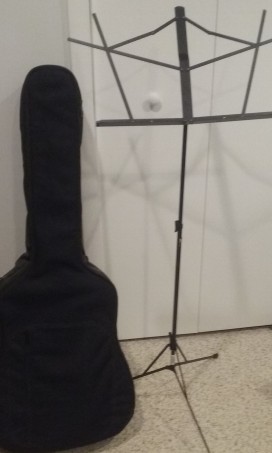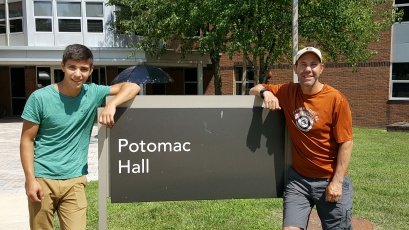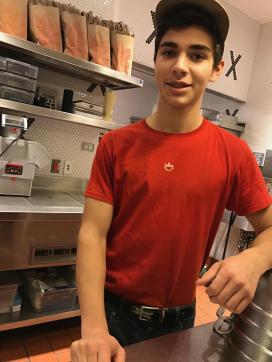Choose It or Lose It
…[E]verything can be taken from a man but one thing: the last of the human freedoms—to choose one’s attitude in any given set of circumstances, to choose one’s own way. And there were always choices to make. Every day, every hour, offered the opportunity to make a decision…
Viktor Frankl, Man’s Search for Meaning
…[F]or all practical purposes, we choose everything we do, including the misery we feel. Other people can neither make us miserable nor make us happy…[W]e choose all our actions and thoughts and, indirectly, almost all our feelings and much of our physiology. As bad as you may feel, much of what goes on in your body when you are in pain or sick is the indirect result of the actions and thoughts you choose or have chosen every day of your life…[W]e are much more in control of our lives than we realize. Unfortunately, much of that control is not effective…Taking more effective control means making better choices…
William Glasser, MD, A New Psychology of Personal Freedom
In the 1990s, I attended the Landmark Forum, a three-day workshop designed to bring about transformative changes in the quality of one’s life through an examination of, and shifts in one’s beliefs, thoughts, behaviors, patterns, commitments and actions.
A Forum anecdote that I remember 20 years later is “Flat tire. Choose.” The premise is simple: Your car gets a flat tire on an inconvenient stretch of road. The choices are more complicated: bash the steering wheel; kick the tire; Frisbee the hubcap; bang the hood; yell and scream; drop some F-bombs; curse the gods and your perpetual bad luck; cry; sit on the side of the road in misery or bewilderment. Or, choose to accept reality and make decisions to address the problem. It’s your choice: Choose…
I have no choice. How many times have you heard that grievance? Is it ever really true?
We all have choices, all the time. Even when it seems like we don’t have any. Even when it seems we have no good choices, when choices are constrained, we still have choices, the free will to choose. We can choose our attitude, our perspective, our response, our outlook, our meaning. We can choose not to choose, and still make a choice.
the free will to choose. We can choose our attitude, our perspective, our response, our outlook, our meaning. We can choose not to choose, and still make a choice.
We can even choose our feelings, contends the founder of reality therapy and choice theory, William Glasser, MD, who would say that an individual is “depressing,” or “saddening,” indicating that they are consciously choosing their mood state and have the power to make a different choice.
According to Glasser’s choice theory, all human behavior is intentional, not aimless, and choices are based on “here-and-now” motivations. Choices are made to generate feedback from the outer world and satisfy what Glasser defined as the five basic human needs: survival, love/belonging, power, freedom/independence and fun. Choices also are made to send a message to the outer world, and to specific individuals with whom one has a relationship; for example, that one is confident or self-doubting, happy or angry, trusting or distrustful, constructive or self-destructive, hungry for success or resigned to failure.
Psychiatrist Viktor Frankl, a World War II Holocaust survivor who spent years in a Nazi concentration camp, described the realization that he had choices – his belief in his own self-dignity, and what he could think, envision and hope, for example — despite the brutal and horrific conditions he endured as a captive as a main reason for his survival. Recognizing the freedom to choose was a prime factor that separated those who maintained a sense of meaning in their lives and hope for the future, and those who became deadened to life, devoid of faith and more likely to succumb to death, Frankl wrote in Man’s Search for Meaning.
I have observed as a mental health counselor that the execution of choice in people’s lives – the willingness to use it proactively and the effectiveness with which it is used – is perhaps the greatest determiner of an individual’s mental and emotional health, the condition of their relationships and their ability to create meaning and purpose in their lives.
Husbands and wives decline to choose to change behaviors or actions that affect their relationships, or to choose to change their relationship status though they confess to being dissatisfied and unhappy. They are making choices nonetheless, and in so doing, locking patterns in place and cementing bonds that contribute to distress. I’ve seen other couples willing to examine behaviors, accept individual responsibility and choose to make changes, who report an increase in satisfaction and happiness almost immediately.
I have heard individuals describe that they choose not to pursue things they want by creating reasons why their desires may not be practical or possible; choose not to make certain changes because they believe they’re just trapped in circumstances; choose to continue ineffective or destructive beliefs, behaviors and actions, despite evidence of poor results, simply because they’ve always chosen that path; choose to deny reality; choose to be taken advantage of or victimized; choose to rationalize addictions; and choose to blame others for how they feel and what they do.
I have also witnessed individuals, even as young as middle schoolers, choose to battle heroically against the hand they were dealt in life, including horrendous abuse, to reclaim their true selves and create their own futures; choose to make meaning out of devastating circumstances, including incurable illness; and choose to take full responsibility for the direction of their lives and their own happiness.
During the upheaval of midlife, I’ve considered and made many choices that have had major consequences in my life – whether and how to commit to furthering my education; pursue a career change; empower my kids; fight back against an unfair employer; rebound from divorce; enter new romantic relationships; re-evaluate and restructure current relationships; live on less; relocate to a new area; start over; and deal with loneliness among them.
Many of the choices have been stressful and excruciatingly difficult; however, I appreciate my ability and freedom to make choices. Usually I have chosen to do something instead of nothing, chosen to take an action rather than punt. I also have had opportunities to choose my feelings, which can range broadly along a spectrum: optimism vs. pessimism; hopefulness vs. sadness; confidence vs. fearfulness; contentedness vs. dissatisfaction; trust vs. doubt; vitality vs. loneliness. Those choices affect my emotions and happiness with my life every day, and thus my effectiveness, productivity and image I present to the world.
Choice is a muscle; without effective and contemplative use, it atrophies, becoming a mechanism to promote misery rather than a tool to amplify freedom. Choose it or lose it: The choice is yours, always and forever.
Speaking of choice, here’s a quote about choice from a favorite movie, The Family Man, in which Jack continually faces choices involving love vs. detachment; family vs. career; personal ego gratification vs. egoless contribution; hedonism vs. temperance; taking vs. giving:
Kate: When you got on that plane, I was sure it was over. I left the airport afraid I’d never see you again. And then you showed up the very next day. That was a good surprise. You know, I think about the decision you made… maybe I was being naive, but I believed that we would grow old together in this house. That we’d spend holidays here and have our grandchildren come visit us here. I had this image of us, all grey and wrinkly, and me working in the garden and you re-painting the deck. But things change. If you need this, Jack, if you really need this, I will take these kids from a life they love and I’ll take myself from the only home we’ve ever shared together and I’ll move wherever you need to go. I’ll do that because I love you. I love you, and that’s more important to me than our address. I choose us.
https://www.youtube.com/watch?v=n0ZGibTDo9A

 that one can control their child’s fate, bail out the child at every turn, and feel eternally responsible for the child’s life choices and outcomes.
that one can control their child’s fate, bail out the child at every turn, and feel eternally responsible for the child’s life choices and outcomes. but I am earning a good paycheck here, and in general it resolves this cognitive dissonance in favor of the familiar. At the bottom of every dilemma is fear.”
but I am earning a good paycheck here, and in general it resolves this cognitive dissonance in favor of the familiar. At the bottom of every dilemma is fear.” assignment teaching English in two French middle schools, her first professional job after graduating college. This will be her second tour abroad, following a semester in college in which she studied at the University of Lyon in Lyon, France, and traveled throughout Europe.
assignment teaching English in two French middle schools, her first professional job after graduating college. This will be her second tour abroad, following a semester in college in which she studied at the University of Lyon in Lyon, France, and traveled throughout Europe. teamwork and communications that comprise effective work environments; play a role in his maturation; and help him build a financial nest egg before launch into the adult world, all while he is still a teenager. That’s what Brown can do for me – and my 19-year-old son Daniel.
teamwork and communications that comprise effective work environments; play a role in his maturation; and help him build a financial nest egg before launch into the adult world, all while he is still a teenager. That’s what Brown can do for me – and my 19-year-old son Daniel.
 At neighborhood events, I often see my former guitar teacher, my neighbor who has a guitar studio within walking distance where I once took lessons. And then, inevitably, a wave of regret and guilt washes over me.
At neighborhood events, I often see my former guitar teacher, my neighbor who has a guitar studio within walking distance where I once took lessons. And then, inevitably, a wave of regret and guilt washes over me. himself from the masses who hold college degrees, which no longer guarantee entry into the professional world, by going the STEM (Science, Technology, Engineering, Math) route and will find himself in demand in the job market. No post-college Parental Unit Domicile (PUD) basement-dwelling likely or necessary for him!
himself from the masses who hold college degrees, which no longer guarantee entry into the professional world, by going the STEM (Science, Technology, Engineering, Math) route and will find himself in demand in the job market. No post-college Parental Unit Domicile (PUD) basement-dwelling likely or necessary for him!